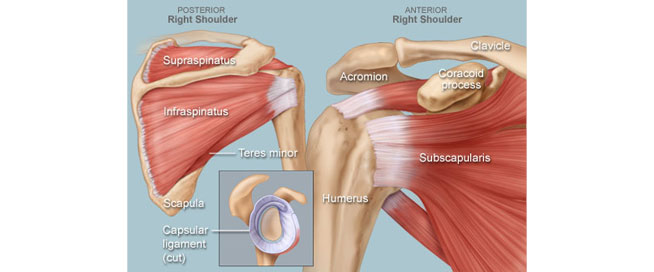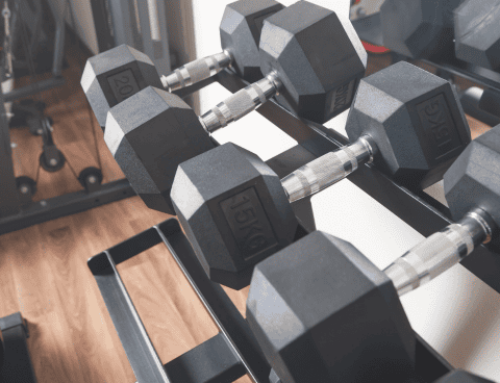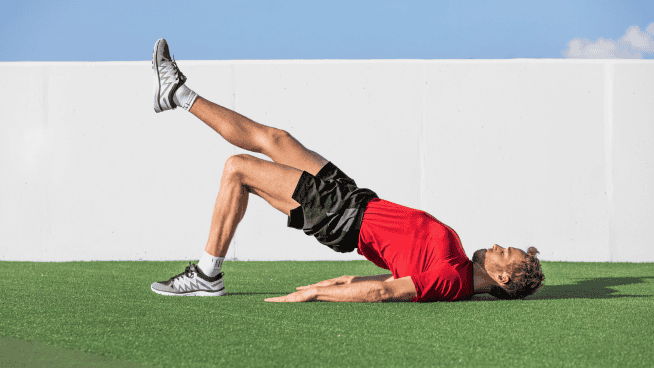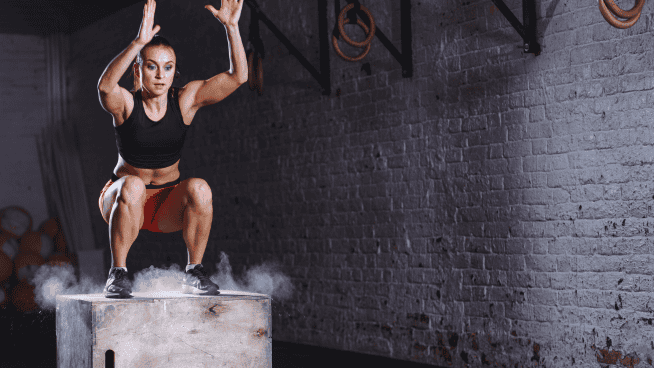Why Baseball Players Shouldn’t Bench Press
Photo: AP
More than a few sacred cows are grazing in the field of strength and conditioning—one of which is the Bench Press.
It’s universally revered and found in many—if not most—training programs. As a matter of a fact, it’s probably the first barbell exercise most athletes ever attempt.
Talking smack about the Bench Press is the fitness equivalent of badmouthing Princess Diana—or worse, kittens. You just don’t do it!
I have nothing against the exercise, and I’d be remiss if I did not admit it’s an important strength and size builder. I think we can agree the Bench Press is a superstar. However, this does not mean everyone should do it, especially baseball players.
So, why would you want to avoid one of the best exercises out there?
It’s a loaded question, but one that can easily be answered with critical thinking.
It Won’t Improve Your Skills
Let’s start with the most obvious answer. It won’t help you throw a baseball harder or hit a baseball farther.
Maybe in a roundabout way, it could help you gain weight—assuming you’re focusing on compound movements and eating ample calories—which in turn will help improve performance in some measure.
But to say that the Bench Press is a key factor in helping baseball players become better baseball players is an overstatement.
Throwing and hitting are full-body movements. The Bench Press is a pec-dominant exercise. Does your hitting power come from your pecs? No. It comes from your lower-body—particularly your hips.
Baseball is Violent!
Digging a little deeper, the act of throwing a baseball—what actually happens in the shoulder and by extension, the elbow joint—is not pretty.
Baseball pitching is the single-fastest motion in all of sports, as the humerus (the upper arm bone) internally rotates at velocities in excess of 7,000 degrees per second. Worse, the amount of stress placed on the elbow is equivalent to hanging a 40-pound dumbbell on a string from your hand to the ground.
So, the shoulder has to deal with some significant forces during baseball games. Adding stress to it in the weight room can exacerbate any issues and accelerate a potential overuse injury.
The Shoulder Is . . . Kind of Delicate
The shoulder is also a very “claustrophobic” joint when you consider the amount of space between the acromion process and the rotator cuff muscles—specifically the supraspinatus—passing through it. It’s literally millimeters, and there’s not a lot of wiggle room for things to move smoothly. So, it’s a prime spot for an impingement.

Photo via WebMD
Note: The term “impingement” does not explain why or what causes the problem. It could be poor mobility, tissue quality or exercise selection. There is always some degree of impingement, but it won’t necessarily be painful or cause problems.
Think about what happens when you grab a barbell while lying on the bench. You’re fixed in an overhand grip with your hands parallel to each other. This causes your humeral head to rotate inward, closing the gap between the acromion and supraspinatus.
Essentially, you’re increasing the probability of impingement.
It Locks Down Your Shoulder Blades
Your hands are free to move during the Bench Press, but your shoulder blades are glued down against the bench by possibly hundreds of pounds of weight.
But your shoulder blade must move when you throw, especially when your arm is overhead. To see what I mean, take your shirt off, stand with your back to a mirror and raise your arm straight overhead. You can clearly see how much your shoulder blade moves.
If you develop your upper body with your shoulder blades locked down, as in the Bench, you will reduce mobility and shoulder range of motion. Not exactly an ideal scenario for an athlete who relies on the ability to get his arms overhead and throw a baseball.
Safer Alternatives
This should explain why I’m careful with the types of exercises I use in my programs for baseball players.
The Bench Press is perfectly safe. However, when working with young baseball players or those who have millions of dollars riding on their arm, it’s just not a risk worth taking. You can strengthen your chest and upper body by choosing safer alternatives, exercises that are more appropriate for baseball players.
Push-Ups
I know many athletes roll their eyes and think Push-Ups are wimpy and too easy. But I can assure you that the training variety offered by Push-Ups is virtually infinite, and there are many ways to make them more difficult.
Assuming technique is spot on, Push-Ups also tend to more “shoulder friendly,” because the shoulder blades are allowed to move freely.
Read more about how to use Push-Ups in your training.
Dumbbell Bench Press
Although the Dumbbell Bench Press and its variations are similar to the barbell Bench Press, they do tend to be easier on the shoulders. Why? You can perform them with a neutral-grip (palms facing each other), which provides a bit more “wiggle room” in the space between the acromion and supraspinatus.
Read more:
- Why You Should Ditch the Bench Press
- 3 Ways to Build a Bigger Bench Press (Without Benching!)
- Push-Ups: The Best Bodyweight Exercise
[cf]skyword_tracking_tag[/cf]
RECOMMENDED FOR YOU
MOST POPULAR
Why Baseball Players Shouldn’t Bench Press
Photo: AP
More than a few sacred cows are grazing in the field of strength and conditioning—one of which is the Bench Press.
It’s universally revered and found in many—if not most—training programs. As a matter of a fact, it’s probably the first barbell exercise most athletes ever attempt.
Talking smack about the Bench Press is the fitness equivalent of badmouthing Princess Diana—or worse, kittens. You just don’t do it!
I have nothing against the exercise, and I’d be remiss if I did not admit it’s an important strength and size builder. I think we can agree the Bench Press is a superstar. However, this does not mean everyone should do it, especially baseball players.
So, why would you want to avoid one of the best exercises out there?
It’s a loaded question, but one that can easily be answered with critical thinking.
It Won’t Improve Your Skills
Let’s start with the most obvious answer. It won’t help you throw a baseball harder or hit a baseball farther.
Maybe in a roundabout way, it could help you gain weight—assuming you’re focusing on compound movements and eating ample calories—which in turn will help improve performance in some measure.
But to say that the Bench Press is a key factor in helping baseball players become better baseball players is an overstatement.
Throwing and hitting are full-body movements. The Bench Press is a pec-dominant exercise. Does your hitting power come from your pecs? No. It comes from your lower-body—particularly your hips.
Baseball is Violent!
Digging a little deeper, the act of throwing a baseball—what actually happens in the shoulder and by extension, the elbow joint—is not pretty.
Baseball pitching is the single-fastest motion in all of sports, as the humerus (the upper arm bone) internally rotates at velocities in excess of 7,000 degrees per second. Worse, the amount of stress placed on the elbow is equivalent to hanging a 40-pound dumbbell on a string from your hand to the ground.
So, the shoulder has to deal with some significant forces during baseball games. Adding stress to it in the weight room can exacerbate any issues and accelerate a potential overuse injury.
The Shoulder Is . . . Kind of Delicate
The shoulder is also a very “claustrophobic” joint when you consider the amount of space between the acromion process and the rotator cuff muscles—specifically the supraspinatus—passing through it. It’s literally millimeters, and there’s not a lot of wiggle room for things to move smoothly. So, it’s a prime spot for an impingement.

Photo via WebMD
Note: The term “impingement” does not explain why or what causes the problem. It could be poor mobility, tissue quality or exercise selection. There is always some degree of impingement, but it won’t necessarily be painful or cause problems.
Think about what happens when you grab a barbell while lying on the bench. You’re fixed in an overhand grip with your hands parallel to each other. This causes your humeral head to rotate inward, closing the gap between the acromion and supraspinatus.
Essentially, you’re increasing the probability of impingement.
It Locks Down Your Shoulder Blades
Your hands are free to move during the Bench Press, but your shoulder blades are glued down against the bench by possibly hundreds of pounds of weight.
But your shoulder blade must move when you throw, especially when your arm is overhead. To see what I mean, take your shirt off, stand with your back to a mirror and raise your arm straight overhead. You can clearly see how much your shoulder blade moves.
If you develop your upper body with your shoulder blades locked down, as in the Bench, you will reduce mobility and shoulder range of motion. Not exactly an ideal scenario for an athlete who relies on the ability to get his arms overhead and throw a baseball.
Safer Alternatives
This should explain why I’m careful with the types of exercises I use in my programs for baseball players.
The Bench Press is perfectly safe. However, when working with young baseball players or those who have millions of dollars riding on their arm, it’s just not a risk worth taking. You can strengthen your chest and upper body by choosing safer alternatives, exercises that are more appropriate for baseball players.
Push-Ups
I know many athletes roll their eyes and think Push-Ups are wimpy and too easy. But I can assure you that the training variety offered by Push-Ups is virtually infinite, and there are many ways to make them more difficult.
Assuming technique is spot on, Push-Ups also tend to more “shoulder friendly,” because the shoulder blades are allowed to move freely.
Read more about how to use Push-Ups in your training.
Dumbbell Bench Press
Although the Dumbbell Bench Press and its variations are similar to the barbell Bench Press, they do tend to be easier on the shoulders. Why? You can perform them with a neutral-grip (palms facing each other), which provides a bit more “wiggle room” in the space between the acromion and supraspinatus.
Read more:
- Why You Should Ditch the Bench Press
- 3 Ways to Build a Bigger Bench Press (Without Benching!)
- Push-Ups: The Best Bodyweight Exercise
[cf]skyword_tracking_tag[/cf]










